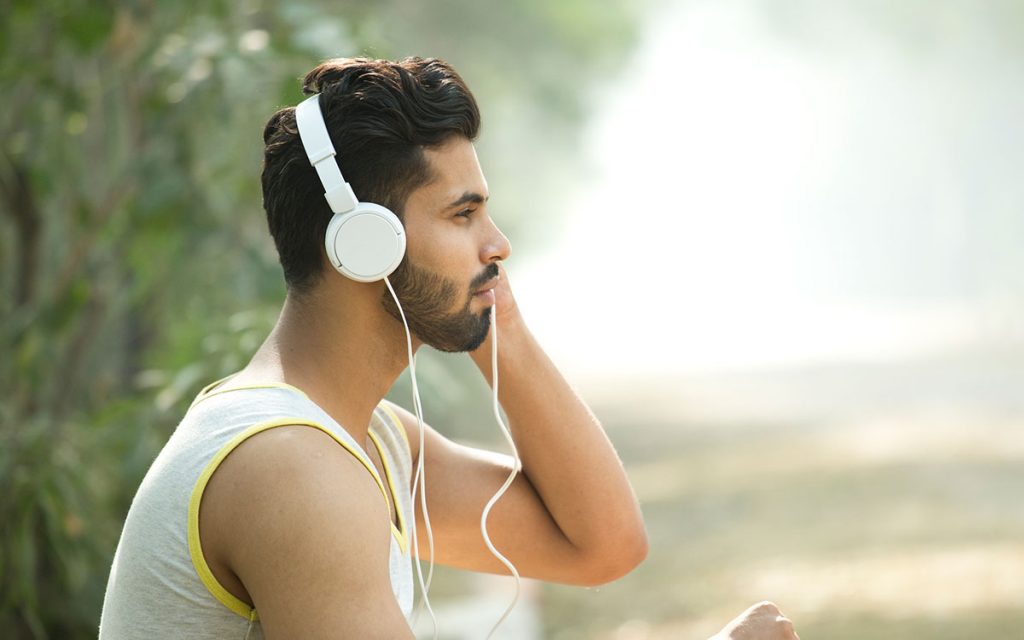Have you ever watched a cat hunt in the wild? It’s pretty mesmerizing. They move so very slowly and so very carefully to catch their prey. And then, when the moment is right, they strike with an immense burst of speed.
I watch my cat do this all the time (only he’s hunting nerf darts instead of gazelle).
That’s basically what’s happening with your ears and hearing loss. The damage–caused by constant noise, most especially–is moving so slowly that, like the poor gazelle (or nerf dart), you never see it coming. At least, not until it’s too late to do anything except purchase hearing aids (at this point, the cat metaphor breaks down).
But the point is this: hearing loss is going to do the most damage when you aren’t really aware of it. For the vast majority of us, that damage is occurring at ever-younger ages.
Hearing loss and damage
It’s not like you reach the age of 60 and every part of your body simultaneously decides to break down (though, honestly, sometimes it can feel like that’s exactly what happens). There’s no expiration date on your ears and your hearing.
As one famous and fictional archaeologist once said: “It’s not the years, it’s the mileage.” And the same is true of your ears. It’s not so much that you lose your hearing as you age. It’s that you lose your hearing as your ears experience damage.
It’s likely that you know exceptionally loud noises cause damage to your ears. You know, for example, that the ringing in your ears after a concert isn’t good. But most people underestimate how little noise it takes to cause damage to your ears; something as mundane as a lawnmower can, over a long enough period of time, be loud enough to cause permanent damage.
You’re invincible when you’re young, right?
In part because of lack of awareness and in part because of their own inability to appreciate long-term consequences (what’s the proverb about youth being wasted on the young?), researchers have noticed a distinct bump in young people who are suffering from hearing loss.
In fact, nearly 20% of those between the ages of 20-29 suffer from some form of hearing loss. And many of them likely don’t even know it. That’s a big problem because those youthful years are so formative for your hearing health. When you’re young, there’s a lot you can do to prevent your hearing loss from getting started or growing worse.
But that window tends to close the more often you expose your ears to loud, damaging levels of sound. If they were aware of their hearing loss, they could actually do something about it.
How to prevent hearing loss
So, if you’re between the ages of 20-29, there are a few things you can do to protect your hearing:
- Get your hearing checked. Usually, a hearing screening or test can help determine if you have any degree of hearing loss.
- Download an app that tells you how loud noises are in your environment (measured in decibels), and compare that to safe sound levels.
- Avoid listening to earbuds at extreme volumes.
- Wear earplugs or earmuffs when you’re in loud environments (this is especially true if your workplace is on the noisy side–ensure that you’re wearing hearing protection at work).
And if you are indeed showing the signs of hearing loss, there are plenty of hearing aid models that are quite inconspicuous. It’s sometimes difficult to convince young people to wear hearing aids, but these devices are designed specifically to help you preserve the hearing levels you have left and improve your social interactions. In other words, they help you stay cool and involved. Most modern models are also very inconspicuous and discreet.
You’re never too young to protect your hearing
Preventing hearing loss is especially challenging because, like that cat on the savannah, it approaches so slowly that it’s easy to ignore. Maybe you miss the warning signs and the red flags. Maybe, you say to yourself, you’re too young to lose your hearing.
Unfortunately, you actually aren’t too young to develop hearing loss. Most hearing loss is caused by noise damage. And you’re never too young for that.
